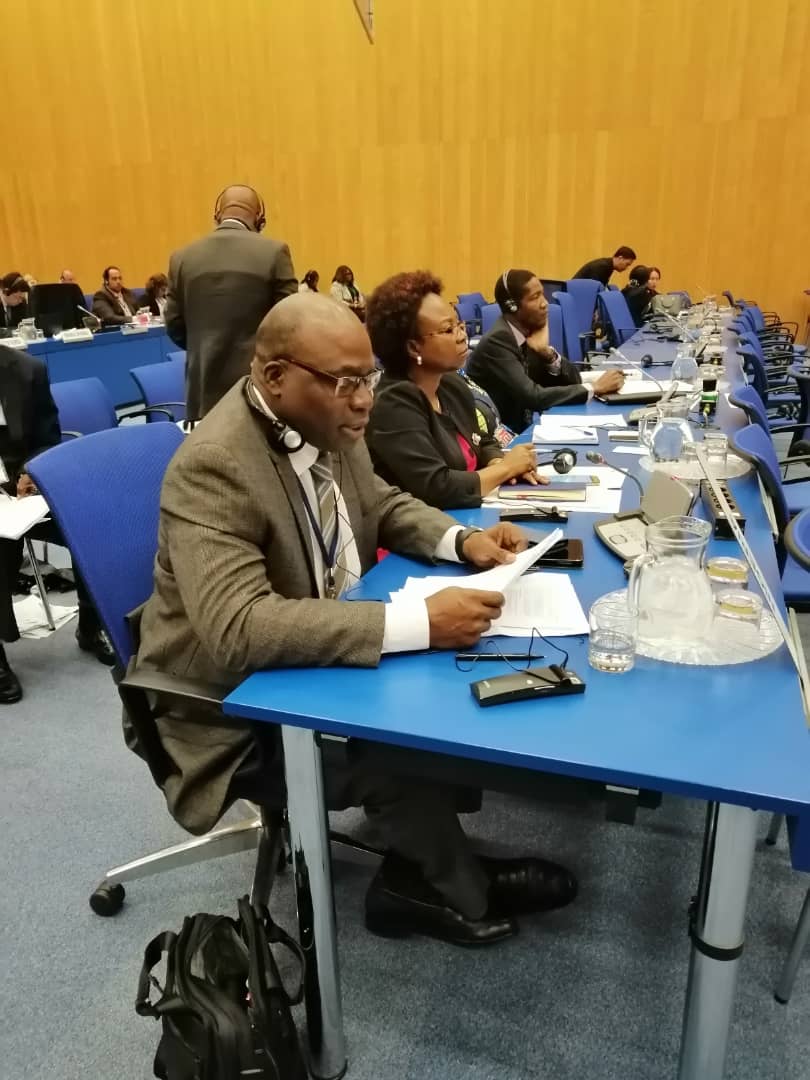The Chairman of the Independent Corrupt Practices and Other Related Offences Commission (ICPC), Prof Bolaji Owasanoye, has stated that Nigeria is committed to winning the war against corruption.
Prof Owasanoye made the statement in a speech he delivered on behalf of Nigeria at the Resumed 10th Session Of The Implementation Review Group (IRG), on the United Nations Convention Against Corruption (UNCAC) holding from 2nd to 4th September 2019.
He spoke about Nigeria’s contributions to the ongoing review of the Convention document as “a comprehensive remediation plan to address identified gaps and vulnerabilities”.
Prof Owasanoye also said the contributions were anchored on the country’s own anti-corruption strategy, while mentioning some of the steps Nigeria had taken to ensure victory in the anti-corruption fight.
According to him Nigeria had developed a holistic national anti-corruption strategy which ensures sustainability and strategic linkage to its overarching national development plan as well as the Sustainable Development Goals (SDG). In addition, he noted that the strategy would enhance public access to information, and facilitate public reporting including the establishment of a beneficial ownership register.
The ICPC boss said the country was addressing identified gaps in coordination and synergy in the fight against corruption by strengthening public sector integrity through the improvement of conflict of interest rules and accountability in public procurement, as well as the speedy introduction of relevant legal frameworks for achieving them.
The proposed pieces of legislation such as the Proceeds of Crime Bill, the Mutual Legal Assistance Bill, and the Whistleblowers’ Protection Bill (which will augment the existing Whistle-Blower compensation policy), according to him, indicate that Nigeria was prioritizing the anti-money laundering regime and strengthening processes in order to stay ahead of criminal elements.
On the management of assets recovered from corrupt persons, he revealed that the processes across relevant agencies have been energized in order to improve transparency, accountability and boost public confidence in the fight against corruption, as well as assure much needed resources for critical social initiative programmes benefitting the poor and vulnerable.
Prof Owasanoye, however, drew attention to the necessity for the IRG to ensure that the “commitment of State Parties to avail one another the widest measure of cooperation and assistance on assets recovery” was strengthened and fully complied with so that the gap between confiscated and returned assets would be addressed.
He ended his speech by commending the UN System, European Commission, and UK Department for International Development (DFID) for the provision of technical assistance to enhance the capacity of Nigeria’s anti-corruption agencies.


